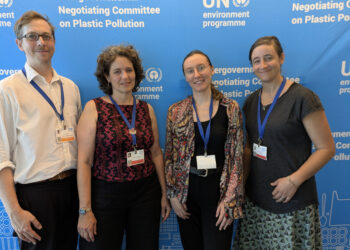The Canada Plastics Pact has released a plan for how it envisions developing a circular economy for polymers.
The document, released Oct. 21, is called “Roadmap to 2025: A shared action plan to build a circular economy for plastics.” It lays out three strategic priorities: reduce, reuse and collect; optimize recycling infrastructure; and use data to improve the whole system.
Over 70 businesses, nonprofit organizations and governments make up the Canada Plastics Pact (CPP), which is modeled off of other plastics pacts formed around the world. Their creation was organized by the Ellen MacArthur Foundation. The “roadmap” document is similarly modeled off plans drafted by other pacts. The U.S. Plastics Pact published its five-year roadmap in June 2021.
“Canadians, our governments, and our businesses have had enough of plastic waste,” George Roter, managing director of the CPP, stated in the release. “The Roadmap is designed to comprehensively address this problem quickly and together, and sets forth both coordinated individual business actions and the system changes that are needed into a single agenda, with ambitious targets for 2025.”
By 2025, the CPP wants all of its partners to achieve the following plastic packaging targets: problematic or unnecessary plastic packaging is identified and steps are taken to eliminate it; 100% of plastic packaging is reusable, recyclable or compostable; 50% is recycled or composted; and there is 30% recycled content across all plastic packaging.





























